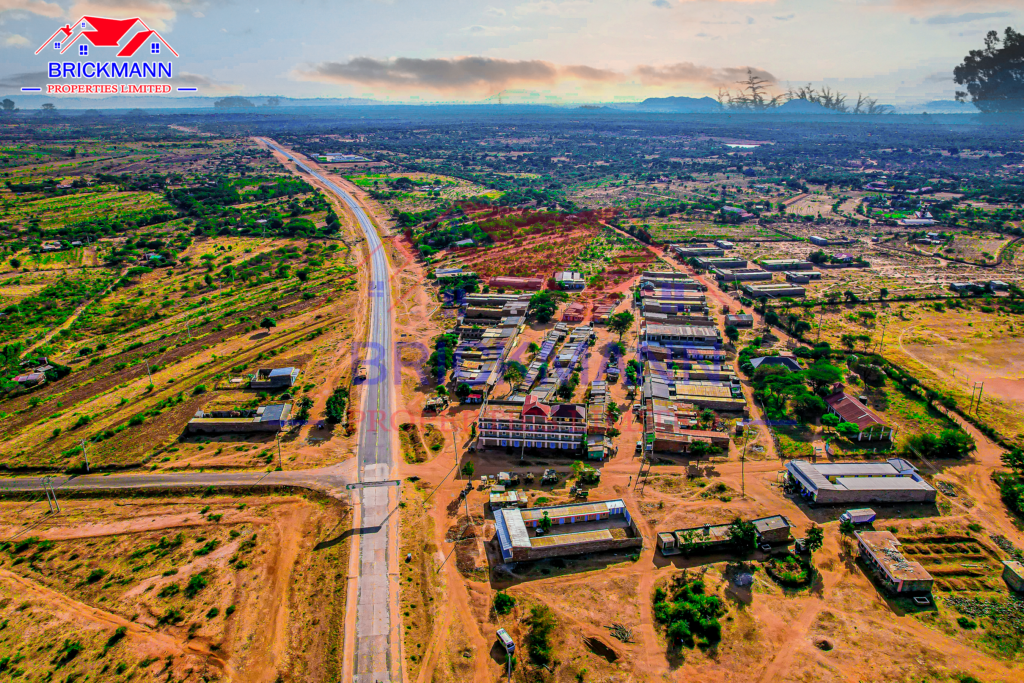Purchasing land is one of the most significant investments a person can make, especially in Kenya, where real estate continues to grow as a lucrative sector. However, first-time land buyers often face various challenges, including legal hurdles, hidden costs, and the risk of purchasing land with unclear ownership. This blog post will guide you through essential tips for buying land in Kenya, focusing on the key steps you need to take to avoid pitfalls and secure your investment.

Conducting Proper Due Diligence
Conducting thorough due diligence is the cornerstone of any land purchase in Kenya. This process involves verifying the legitimacy of the land, confirming its ownership, and ensuring that it is free of disputes. Here are some crucial steps to follow:
Title Search
Before committing to a land purchase, it’s essential to conduct a title search at the Ministry of Lands. This process verifies the true ownership of the land and ensures that the seller has the legal right to sell it. A title search can also uncover any liens, claims, or encumbrances on the land, such as unpaid debts or legal disputes.
Neglecting this step could lead to buying land that belongs to someone else or being involved in ongoing legal battles, which could result in significant financial and emotional loss. Working with a lawyer to conduct a title search is a prudent move to ensure all legal aspects are covered.
Due Diligence Survey
Conducting a land survey is another crucial part of the due diligence process. A land survey confirms that the physical boundaries of the land match the official records. It also helps identify any issues such as encroachments or the presence of squatters. Surveying the land provides peace of mind that what you are purchasing is precisely what is reflected in the Registry Index Maps (RIM).
Environmental Compliance
In addition to planning regulations, it’s vital to investigate whether the land meets environmental regulations. In Kenya, certain parcels of land may be restricted due to their proximity to protected areas or because of environmental hazards such as flooding zones. Environmental compliance ensures that your property is safe for development and free from risks that may hinder its use.
Understanding Hidden Costs Involved in Land Purchase
While the price tag on a piece of land is often the primary focus for buyers, several hidden costs come into play during the land acquisition process. These costs can catch first-time buyers off guard, so it’s crucial to account for them early in the purchasing journey.
Stamp Duty
One of the most significant additional costs is stamp duty, a tax levied on legal documents related to the transfer of land. In Kenya, stamp duty is typically a percentage of the property’s market value(between 2% to 4%) of the property’s value, depending on its location, and must be paid before ownership can officially change hands.
Legal Fees
Legal representation is indispensable when purchasing land, and this comes with legal fees. These fees cover services such as drafting the sale agreement, conducting the title search, and ensuring that all documentation is in order. While legal fees may seem like an additional burden, they protect you from costly mistakes that could arise later.
Valuation Fees
Lenders may require a property valuation to determine the true market value of the land, especially if you’re taking out a loan to finance the purchase. Valuation fees are typically paid to certified professionals who assess the property and provide an official valuation report.
Survey Fees
If a survey is necessary to confirm the boundaries and size of the property, there will be survey fees. These fees pay for the professional surveyor’s time and expertise in ensuring that the land you’re buying is accurately mapped and free from encroachments.
Registration Fees
Once the purchase is complete, you’ll need to register the land with the Ministry of Lands. Registration fees are paid to update the records to reflect the new ownership. These costs are often overlooked but are a critical part of finalizing the land purchase.
Affordable Collective Transfer Fees with Brickmann Properties
At Brickmann Properties, we understand that these hidden costs can accumulate. That’s why we offer an affordable collective title transfer fee, which covers all the obligations, including stamp duty, legal fees, valuation fees, survey fees, and registration fees, ensuring a smooth and cost-effective process for our clients.
Understanding Legal Aspects When Purchasing Land
Land transactions in Kenya are governed by various legal frameworks that ensure the process is transparent and secure. First-time buyers must be aware of these laws and regulations to avoid potential pitfalls.
Sale Agreement
The sale agreement is a legally binding contract that outlines the terms and conditions of the sale. It’s essential to have this document drafted or reviewed by a qualified advocate to ensure that it protects your interests. The agreement will include details such as the purchase price, payment terms, and any special conditions, such as the completion of a title transfer.
Verification of Ownership
Verifying ownership is a critical legal step in the land-buying process. The title search at the Ministry of Lands should confirm that the seller is the registered owner of the property and that there are no legal disputes or encumbrances. Failing to verify ownership can result in purchasing land that legally belongs to someone else, leading to costly legal battles.
Compliance with Local Laws
Finally, buyers need to ensure that the land complies with all local laws, including zoning regulations and environmental guidelines. Working with professionals, such as advocates and surveyors, can help navigate these complex regulations and ensure that all legal requirements are met.
Understanding the Advantages of Professional Guidance
Benefits of Working with a Real Estate Company
When buying land in Kenya, working with a reputable and registered real estate company or agent can be invaluable. These professionals bring extensive market knowledge and experience, saving buyers time and ensuring a smoother process 11. They act as filters, presenting properties that align precisely with the buyer’s requirements and managing inquiries from serious potential buyers for sellers 11.
Real estate agents possess comprehensive knowledge of neighborhoods and estates, providing critical information about local areas, including comparable sales, property developments, and insights into amenities such as schools and shopping malls 11. They also offer guidance in pricing and negotiation strategies based on current market conditions 11.
One significant advantage of working with real estate agents is their access to market insights. They provide essential data on market conditions, including average cost per square foot, and median and average sales prices, which significantly influence buying or selling decisions 11
Role of Lawyers in Land Transactions
Lawyers play a crucial role in land transactions in Kenya. Their primary responsibilities include conducting legal due diligence, drafting and reviewing contracts, and facilitating the transfer of land ownership 12.
During due diligence, lawyers verify the legitimacy of the land, ensuring it’s free from encumbrances, disputes, or legal issues. They examine the land’s title deed, confirm its authenticity, and ensure the seller has the legal right to sell the property 12. This step is crucial in preventing fraud and identifying potential red flags.
Lawyers also draft and review essential documents such as sale agreements and transfer documents. They ensure these contracts are legally sound, accurately reflect agreed-upon terms, and protect their client’s interests 12.
Navigating the Kenyan land market can be challenging, especially for first-time buyers. Engaging professional guidance can offer invaluable support throughout the purchasing process.
Risk Mitigation
One of the biggest benefits of working with professionals is risk mitigation. They can help identify and mitigate risks associated with land purchases, such as fraudulent sellers, unclear property titles, or hidden costs. Real estate agents can help you avoid overpriced properties, while advocates ensure all legal documents are in order.
Efficient Process
Professionals streamline the purchasing process, ensuring that all legal and regulatory requirements are met without unnecessary delays. Real estate agents can help find the right property, while advocates handle the legal aspects, leaving you with peace of mind.
Identifying High-Growth Potential Areas: A Smart Investment Strategy
While proximity to amenities, accessibility, and existing infrastructure are important when selecting land, don’t overlook the power of future developments. Often, the real value lies in identifying areas with upcoming infrastructure projects.
Investing in these areas early, while prices are still favorable, can yield high returns as the demand for land increases with improved infrastructure. By identifying regions with upcoming projects—like new highways, schools, or commercial centers—you can secure prime land at a lower cost and benefit from appreciation as the area grows in value.
This approach is especially beneficial for first-time buyers looking to maximize long-term gains while securing affordable land.
Conclusion
Purchasing land in Kenya can be a rewarding investment, but it requires careful consideration and due diligence. From conducting title searches to understanding hidden costs and navigating legal frameworks, each step is crucial to ensuring a successful purchase. By working with professionals and considering future development potential, first-time buyers can secure prime land and maximize their long-term returns.
If you’re ready to start your journey toward land ownership, contact Brickmann Properties today. We’re here to help you find high-potential land at the best prices.





